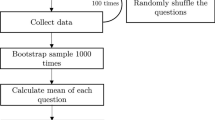Abstract
This paper presents a model in which politicians can increase the probability of election by making exaggerated claims about the benefits of their own platform — referred to as positive campaigning — and by exaggerating the undesirable characteristics of their rival — i.e., negative campaigning. Such lies may be detected at some point in the future and thus result in a costly loss in reputation. Thus the politician must tradeoff immediate benefits against potential future costs. Of course this problem is similar to any commercial endeavor — a car maker, for example, is tempted to claim that his car is better and the competition's is worse than it is. But it is shown that the lack of transferable property rights to political office makes lying more likely in political markets. It is also shown that there is a natural tendency for politicians to engage in more negative campaigning.
Similar content being viewed by others
References
Akerlof, G.A. (1970) The market for ‘lemons’: Quality uncertainty and the market mechanism.Quarterly Journal of Economics 84 (August): 488–500.
Crawford, V.P. and Sobel, J. (1982) Strategic information transmission.Econometrica 50(November): 1431–1452.
Davis, M.L. and Porter, P.K. (1989) Measuring pure and apparent ideology in congressional voting.Public Choice 60(2): 101–112.
Dick, A.R. and Lott, J.R. (1993) Reconciling voter behavior with term limits.Journal of Public Economics 50(October): 1–14.
Klein, B. and Leffler, K. (1981) The role of market forces in assuring contractual performance.Journal of Political Economy 89: 615–641.
Laffont, J.-J. and Tirole, J. (1993)A theory of incentives in procurement and regulation. Cambridge, MA: MIT Press
Lott, J.R. (1987) Political cheating.Public Choice 52(2): 169–187.
Lott, J.R. and Davis, M.L. (1992) A critical review and extension of the political shirking literature.Public Choice 74: 461–484.
McPherson, J. (1987)The battle cry of freedom. New York: Oxford University Press.
Tullock, G. (1967)Toward a mathematics of politics. Ann Arbor: University of Michigan Press.
Author information
Authors and Affiliations
Rights and permissions
About this article
Cite this article
Davis, M.L., Ferrantino, M. Towards a positive theory of political rhetoric: Why do politicians lie?. Public Choice 88, 1–13 (1996). https://doi.org/10.1007/BF00130405
Accepted:
Issue Date:
DOI: https://doi.org/10.1007/BF00130405




